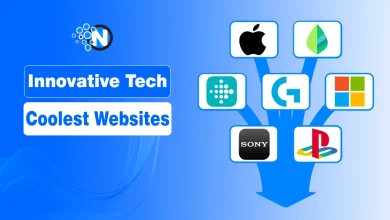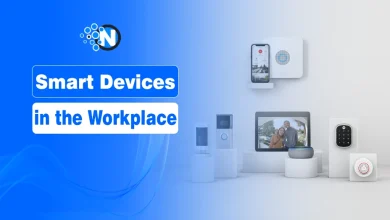How Is Technology Changing Recruitment?

Technology is continuously changing how we perform various tasks in our work and personal lives. It has also transformed the recruitment process, making hiring simpler for employers and job seekers. Innovations in recruitment have altered the way employers advertise jobs, communicate, and track or interview applicants.
Hiring a new team member can be lengthy, costly, and laborious. The good news is technology streamlines the process by offering the tools to expedite recruitment and find the right employee. Let’s explore the different ways technology is changing recruitment.
Attracting Better Candidates
Employers must attract quality candidates to their job listings to reduce the risk of staff turnover and grow their business. Unfortunately, this is often a challenging step, and employers may end up with a pile of applications from unsuitable applicants.
Recruitment technologies, such as blockchain and chatbots and virtual skill tests and collaborations, use sophisticated algorithms to direct candidates to jobs they are suited for based on their qualifications, reducing the number of applications for a job posting. One great benefit of technology is that it allows employers to locate the best talent instead of sifting through a long list of applications. It also allows employers to narrow the options based on the algorithm that helps identify suitable candidates.
Thanks to technology, organizations don’t have to rely on newspapers and traditional job boards to inform potential candidates about vacancies at their company. Organizations now have access to online job posting platforms that offer a wider reach. Online job boards such as LinkedIn, Glassdoor, and Indeed are some of the most popular platforms that have revolutionized how organizations post job vacancies. These platforms offer advanced filtering options that enable recruiters to target specific candidates based on location, experience, and skills.

Saving Time on Interviews
Technology allows companies to interview applicants online, eliminating the need to meet in person. Conducting the initial interview online helps employers narrow their options to invite the most suitable candidates to the office. According to an Indeed survey, 82 percent of respondents said they implemented virtual interviews due to the pandemic, which was necessary during the lockdown. The good news is virtual interviews are here to stay, as 93 percent of employers surveyed share that they plan to continue using them.
Video conferencing tools like Zoom or Skype make it easier to have a “face-to-face” interview without the hassle of commuting to the office. This cost-effective and convenient approach transforms the recruitment process, allowing employers to consider more applicants for a position. Video interviews also enable recruiters to evaluate candidates’ communication skills, body language, and demeanor, which can be difficult to assess through phone or email interviews.
Interviewing candidates online can also help hiring managers save time and streamline the hiring process as it eliminates scheduling complications and delays and reduces the risk of losing candidates to other companies.
Streamlining Candidate Screening
One of the central recruitment tasks involves determining which candidates are qualified for a role based on their experience and skills. Since resumes don’t necessarily paint a complete picture of an individual’s work history, employers can screen candidates to access crucial data. Technology offers access to tools that make screening and evaluating candidates easier through applicant tracking and resume management software, social media platforms, criminal background checks, and the verification of education credentials.
Screening candidates is a key step in the recruitment process, but some employers don’t have the time or resources to go through the process. Fortunately, recruitment agencies can help you screen candidates and narrow down applications. Consult a reputable agency like Sales Talent Agency in NYC to access their services. They can screen candidates to find and select the best talent possible for the position by identifying the job’s minimum requirements, pre-screening to eliminate unsuitable candidates, and using a preliminary assessment to understand which candidates have the desired skills and competencies job and perform in-depth assessments.
Better Candidate Selection Via Artificial Intelligence (AI)
Some organizations or recruitment agencies may also use Artificial Intelligence (AI) to shortlist and select candidates, as AI has been making inroads in recruitment in recent years. In fact, 84 percent of business leaders believe that AI will allow them to stay competitive in the job market.
AI-powered recruitment tools offer advanced screening and matching capabilities, which can help recruiters save time and improve their selection process. AI-powered tools can analyze candidate data, such as resumes, cover letters, and social media profiles, to identify candidates that best match the job requirements. AI-powered chatbots can also be used to screen candidates and answer their questions, saving recruiters time and reducing their workload.
One of the main reasons AI plays a critical role in hiring is its time-saving advantage. Hiring managers or recruiters don’t have to sift through numerous applications to confirm if a candidate is a good fit. AI-powered tools will streamline this step and allow managers to make an informed hiring decisions.
Better Use of Social Media Platforms
Social recruiting is the practice of using social media platforms to find and recruit talent, and it has become an essential tool for recruiters. Platforms like LinkedIn, Twitter, and Facebook have enabled recruiters to reach out to candidates who may not have been actively searching for job opportunities. The platforms also provide recruiters with a way to evaluate candidates’ digital footprint and gauge their online presence. Recruiters can also use social media to advertise job openings and create employer branding campaigns to attract top talent.
Research has found that more than 84 percent of organizations recruit through social media, while an additional nine percent plan to use social media for recruitment.
Recruiting new employees via social media can be more cost-effective than conventional methods, such as in-person job fairs, which would involve more staff members. There are also costs associated with setting up boots, advertising the fair, and traveling to the destination. Social media allows companies to avoid all these costs by hiring virtually.
Today, it is easier for employers to leverage technology to streamline the hiring process. The first step is to educate yourself about how technology can play a role in recruitment to help you hire better and faster.




